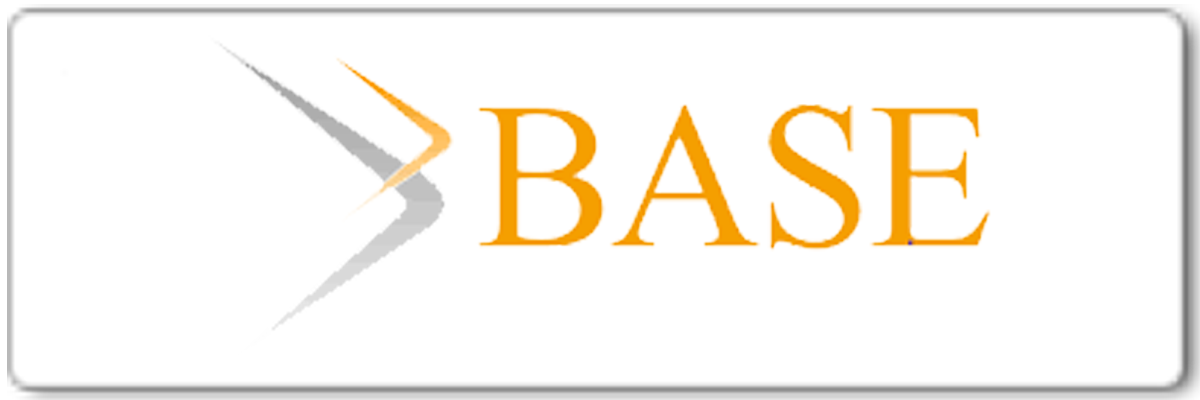Hubungan kecerdasan naturalis dan motivasi belajar dengan kemampuan berpikir kritis peserta didik pada materi pencemaran lingkungan
https://doi.org/10.25273/florea.v5i2.3124
Keywords:
motivation learning, naturalist intelligence, critical thinking skills.Abstract
The skills to think critically on environmental pollution material is the skills of the learners to understand a condition that involves the process of reasoning about environmental pollution. Student’s critical thinking skills is an interaction between various factors, namely naturalist intelligence and motivation learning. Student who possess critical thinking skills are as good as those naturalist intelligence and those who are motivated to learn. This study aimed to determine the correlation between naturalist intelligence and motivation learning with student’s critical thinking skills in Jakarta on environmental pollution. This research was conducted at 68 Jakarta Senior High School on semester II of 2017/2018 school year. The method that was used is descriptive quantitative through correlational study. The sample used amount if 115 students of class X MIA. The result of prerequisite test finds that the data are normally distributed and homogeneous. The statistical hypothesis was done by linier regression test, liniearity test, and correlation coefficient test at α = 0,05. Based on these results, it is concluded there is a correlation between naturalist intelligence and motivation learning with student’s critical thinking skills on environmental pollution.
Â
Downloads
References
DAFTAR RUJUKAN
Adeyemi, S. B. (2012). Developing Critical Thinking Skills in Student: A
Mandate for Higher Education in Nigeria. European Journal Of
Educational Research, 1(2), 155-161.
Armstrong, T. (2002). 7 Kind of Smart (Menemukan dan Meningkatkan
Kecerdasan Anda berdasarkan Teori Multiple Intelligences).
Jakarta: Gramedia Pustaka Utama.
Arslan, S. (2012). The Influence of Environmental Educational on Critical
Thinking and Environmental Attitude. Procedia-Social and
Behavioral Sciences, 1(55), 902-909.
Chase, S. (2011). A Field Guide to Nature as Spiritual Practice. Michigan:
Wm. B. Eerdmans Publishing Co.
Colquitt, J. C., Jeffry, A. L., & Michael, J. W. (2011). Organizational
Behavior: Improving Performance and Commitment in The
Workplace. New York. Mc Graw Hill Companies, Inc.
Darmawan, H. N. (2016). Profil Pembelajaran IPA berbasis Teori
Kecerdasan Naturalis. Jurnal Mutiara Pendagogik, 1(2), 58-66.
Deepa, A. (2014). Relationship Between Multiple Intelligences and
Criticak Thinking of B,Ed. Students With Reference to Locality.
International Journal of Informative and Futuristic Research,
(14), 28-33.
Duncan, T. (2000). Critical Thinking and Its Relationships to Motivation,
Learning Strategies and Classroom Experience. Education
Resources Information Center, 1(1), 31-42.
Fahim, M. (2014). The Relationship Between Motivation and Critical
Thinking Ability Of Iranian Efl Learners. International Journal of
Language Learning and Applied Linguistics World), 5(2), 605-619.
Fitria, K., Suastra W., & Subratha N. (2015). Analisis Kualitatif
Kemampuan Berpikir Kritis Siswa Kelas X SMAN 1 Singaraja Dalam
Pembelajaran Fisika. Jurnal Jurusan Pendidikan Fisika, 2(1).
Kong, Y. (2009). A Brief Discussion on Motivasion and Ways to Motivate
Students in English Language Learning. International Education
Studies, 2(2), 145-148.
Lay, E. (2011). Critical Think: A Literature. Cambridge, MA: MIT Press.
Mauladin, D. 2013. The Effect of Learning Methods and Environmental
Knowledge on Age 5-6 Naturalistic Intelligence (Experiment at AR-
Ridho Nature Kindergaten Group B Tembalang Semarang). Asia
Pacific Journal of Multidisciplinary Research, 1(1), 75-88.
Maryanto, L., Setyowati, N., & Mugiarso, H. (2013). Meningkatkan
Motivasi Belajar Siswa Melalui Layanan Penguasaan Konten
dengan Teknik Bermain Peran. Indonesian Journal of Guidance and
Conseling: Theory and Application, 2(3), 41-48.
McCormick, J. N. (2015). Engganging Students in Critical Thinking and
Problem Solving: A Brief Review of the Literature. Journal of
Studies in Education, 5(4), 100-113.
Muhfahroyin. (2009). Memberdayakan Kemampuan Berpikir Kritis Siswa
Melalui Pembelajaran Konstruktivistik. Jurnal Pendidikan dan
Pembelajaran, 16(1).
Mufiroh. T. (2013). Perkembangan Kecerdasan Majemuk. Jakarta:
Universitas Terbuka.
Nuriyatin, S. (2015). Hubungan Berpikir Kritis dan Motivasi Belajar
Melalui Temuan Terbimbing. Jurnal Edukasi Kajian Ilmu
Pendidikan, 1(2), 181-196.
Quinn, E. C. (2012). Studies on Critical Thinking for Environmental Ethics.
Lincoln: Nebraska.
Randall, T. (2012). Asessment of Change in Conservation Attitudes
Through Zoo and Aquarium Education. Ize Journal, 48(2), 13-15.
Retnowati, R. (2017). The Effect Of Environmental Teaching Method And
The Level Of Natural Intelligence On The Environmental View Of
The Students Behavior. International Journal Of Science Education,
(1).
Sardiman. (2016). Interaksi dan Motivasi Belajar Mengajar. Jakarta:
Rajawali Pers.
Sulistianingsih, P. (2016). Pengaruh Kecerdasan Emosional dan Motivasi
Belajar Terhadap Kemampuan Berpikir Kritis Matematika. Jurnal Kajian Pendidikan Matematika, 2(1), 129-139.
Yaumi, M. (2013). Pembelajaran Berbasis Multiple Intelligences. Jakarta:
Dian Rakyat.
Zubaidi, A. (2009). Tes Inteligensi. Jakarta: Mitra Wacana Media.
Downloads
Additional Files
Published
Issue
Section
License
Every accepted manuscript should be accompanied by "Copyright Transfer Agreement" prior to the article publication.
Florea : Jurnal Biologi dan Pembelajarannya by http://e-journal.unipma.ac.id/index.php/JF is licensed under a Creative Commons Attribution-ShareAlike 4.0 International License.
Author who publish with this journal agree to the following terms:
- Author not hold and retain copyright and grant the journal of first publication with the work simultaneously licenced under Creative Commons Atribution Licence that allows others to share the work with an acknowledgment of the work's authorship and initial publication in this journal.
- Authors are able to enter into separate, additional contractual arrangements for the non-exclusive distribution of the journal's published version of the work with an acknowledgment of its initial publication in this journal.
- Authors are permitted and encouraged to post their work online prior to and during the submission process, as it can lead to productive exchanges, as well as earlier and greater citation of published work.










